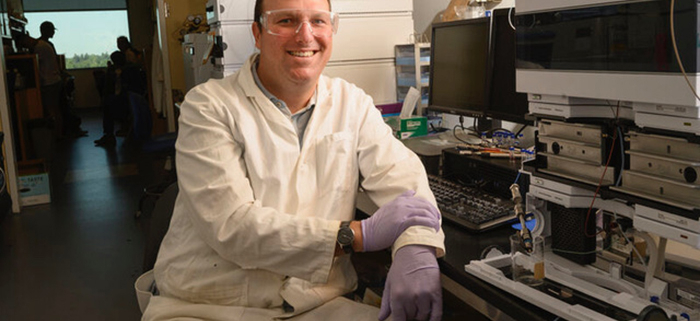New Technology to Improve Digestibility of Dietary Protein Aims to Meet Global Demands and Advance Health Outcomes
By Neelanjana Gautam
Led by researchers from the University of California, Davis, Digestiva is developing a cutting-edge solution of specialized enzymes to enhance the nutritional efficacy of dietary proteins. Their goal is to make proteins more easily digestible, which may allow people to access the full health benefits of proteins without compromising their cultural and personal connections to food.
“Maintaining muscle health is essential throughout our lives, and proper protein utilization is critical for achieving muscle mass and strength. Our technology could be well-suited for people experiencing muscle loss due to aging or other chronic illnesses, accompanied with a reduced appetite. We believe we can make people healthier while enjoying their favorite meals, ” said co-founder Justin Siegel, an associate professor of Chemistry, Biochemistry & Molecular Medicine, and faculty director of the Innovation Institute for Food and Health.
An illustration of a protease enzyme (light purple) digesting a protein fragment (orange, blue, red balls structure).
Protein is an essential nutrient that plays a crucial role in our physical development and overall health throughout our lives. However, some proteins in the food system are particularly difficult to digest, limiting their ability to provide their full nutritive value. To tackle this issue, Siegel and co-founder Wilson Mak, a former doctoral student in Siegel’s lab and now the chief technology officer for Digestiva, have developed a biotechnology platform that mines proteases (enzymes that break down proteins) from nature to optimize and complement our gut’s protein digestion process.
“We only need a tiny amount of protease added to foods, similar to adding seasoning, but without any change to taste and texture. When consumed, the proteases are activated by our stomach’s acidic environment and begin to break down the specific proteins they’ve evolved to target. The proteases act as catalysts that could ultimately unlock health benefits,” Siegel said.
The technology is intended to provide health benefits and reduce indigestion-related bloating and abdominal pain without drastically changing diets by increasing the absorption and digestion of proteins as consumed. In addition, specialized versions are being developed to amplify the health potential of proteins we eat for several health benefits, including blood glucose modulation, inflammation reduction, or cognitive health improvements.
The company sees potential impact that extends far beyond just improving individual health. In many developing countries where access to nourishing food can be difficult, protease enzymes offer a potentially valuable solution. By enhancing the digestibility of suboptimal protein sources, they could enable communities to obtain essential nutrients without requiring drastic changes to diets and cultural practices.
Justin Siegel proposes that a focus on improving protein quality, rather than solely increasing quantity, should be considered as a crucial part of the overall solution to meeting global demands in health and sustainability. “With this Digestiva’s technology, if we can double the nutritional effectiveness of our proteins, it would be a feat that could have remarkable sustainability implications,” said Siegel.
Media Contact
AJ Cheline, UC Davis Office of Research, 530-752-1101, [email protected]







